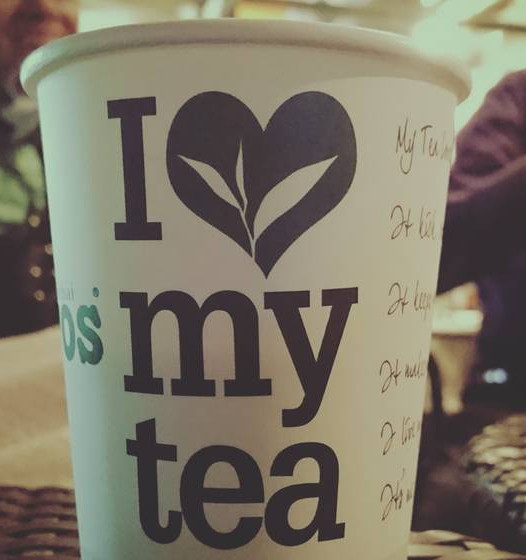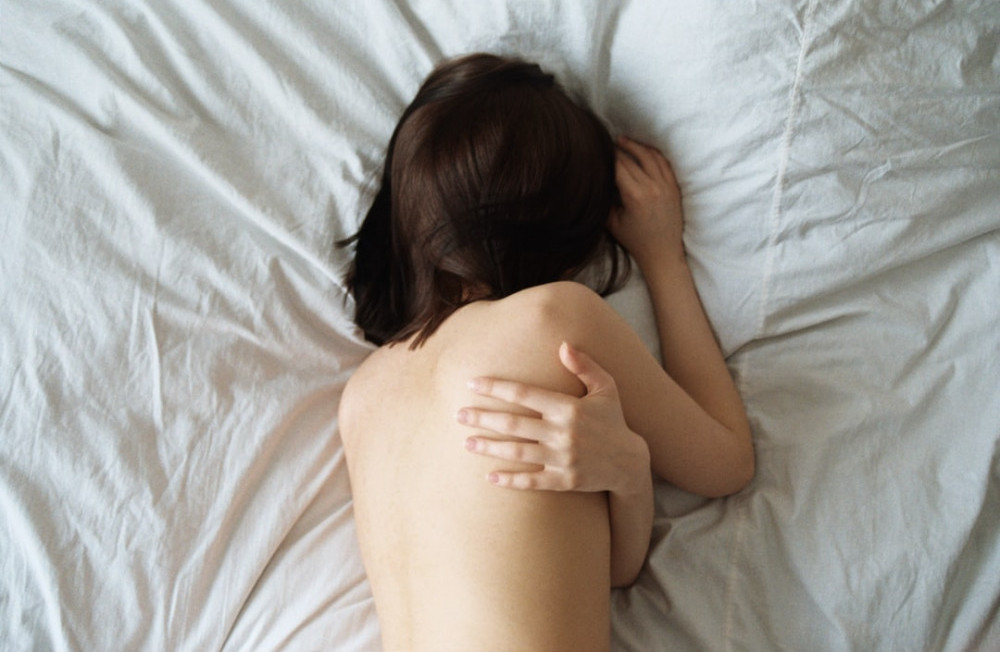
The often quoted mantra that for new moms, feeling sad and unhappy is a normal norm is an unfortunate statement. This becomes more worrisome when it is noted that it is repeated by those that should be in the know. It hides the fact that so many moms suffer untold pain and heartache that we don’t really understand how they feel. The percentage of postpartum mothers that have anxiety disorders that goes unreported is really baffling as we focus majorly on the darlings of the media and celebrities, postpartum blues and postpartum depression.
Postpartum anxiety is also a well recognized phenomenon in the post delivery patient and should be given as much attention as depression and blues if not even more.
Postpartum anxiety affects between 6 to 10 % of mothers and it is defined as the feeling of unnecessary and irrational fear about the baby and events surrounding you and your baby.
Though anxiety is a natural motherly response to the protection and well-being of her child excessive debilitating anxiety is not and that simply is postpartum anxiety disorder.
Signs and Symptoms
Anxiety and wholesome worry is a natural expectation especially when you are entrusted with caring for something or someone that can’t practically do anything for themselves and depend solely on you for just about everything aside breathing. That is what the baby is. So a certain level of anxiety by the mom is normal and usually fades with time as the postnatal period progresses. For an anxiety to become a disorder or disease condition you need to have:
- Racing thoughts always bordering on the negatives
- Constant worry about the safety of the baby and its developmental well-being
- Always feeling dreadful as if something terrible is about to happen
- Unable to stay still and concentrate and always in the habit of doing something every time
- Inability to sleep and loss of appetite even though tired
- Physical manifestations like dizziness, extreme weakness, palpitations, rapid breathing, chest pain and hot flushes.
Causes and Risk factors
Your development of anxiety disorder is related to certain causes and risk factors. The delineation and analysis of these causes and risk factors will help in determining the likelihood of you having postpartum anxiety while you are in the early stages of your pregnancy and assist the clinician in preventive management of the condition.
Personal or family history
A previous history of depression, anxiety or panic attacks or a family history of anxiety disorder is a good predictor of who will develop it postpartum and this history should be ascertained to help in the correct definition and treatment of this condition.
The hormones again
The shifts in the hormones following delivery as estrogen and estrogen that rose 100 folds during pregnancy practically crash to nadir following delivery and is a great factor in causing the mood swings in you that is common following delivery and is implicated in postpartum anxiety disorders.
Societal and family issues
The relationship changes that can occur following delivery coupled with the family and societal pressures associated with taking care of a new baby and the expectation from both family and society to be a perfect mom coupled with the actual stress of taking care of the baby makes you to decouple especially if you have a predisposed personality.
Sleep deprivation
This is a cause and effect situation as lack of sleep leads to anxiety and is also an effect of anxiety so it is an early warning sign that something is amiss and you should deal with this as early as possible to limit its effect on your ability to cope with motherhood.
Types of anxiety
In addition to the common generalized anxiety disorder (GAD), there are some specific anxiety disorders that you should be aware of. Moreover you also should seek to ensure that what you are dealing with is the correct form of anxiety disorder for a proper diagnosis and treatment.
Postpartum panic disorder (PPD)
This is defined by recurring panic attacks and nervousness. You develop an anxiety that is characterized by sudden onset of panic and dread with associated symptoms of palpitation, shortness of breath, listlessness and weakness that suddenly subsides. This can occur several times in a day and is debilitating and renders you ineffective.
Postpartum obsessive compulsive disorder (OCD)
This is an anxiety state that is showcased when you develop an obsessive compulsion to repeated activities like repeatedly cleaning the baby’s feeder even though it is clean and rarely used or engaging in other repeated activities like checking on the baby repeatedly throughout the night. That becomes obsessive to family and well-wishers as it becomes entrenched in your daily routine.
Social anxiety disorder (SAD)
This is an anxiety state in which the sufferer has a phobia for social events and gatherings and avoids interacting with people because of morbid fear of being judged or being embarrassed. this can occur postpartum leading to withdrawal from family events that requires your participation with the baby.
Stages of development of postpartum anxiety
To help you understand anxiety and depressive illnesses better and help you cope with it, using the stages of grief as described by the Swiss Psychiatrist Elisabeth Kubler-Ross in her book death and dying exemplifies the 5 stages of what you go through when suffering from anxiety or even depression. This classification has also found usefulness in any sphere of life difficulties one is going through with from love to death.
Stage 1 Denial : The its not me period.
Stage 2 Anger: The why me period
Stage 3 Bargaining: The i just need to sleep better, work harder, exercise harder period
Stage 4 Depression: The its never going to be better so no point in trying anymore period
Stage 5 Acceptance: The its okay for me to ask for a doctor or seek help period
These stages may not necessarily follow the same pattern for everyone or the same timeline but knowing the stages can help you to begin to realize if you have a problem that needs attention of your doctor and can help you seek care early and help in early recovery.
Is it anxiety or depression
The need to distinguish between generalized anxiety disorder (GAD) and postpartum depression (PPD) is becoming evidently clear as the correct diagnosis will help the clinician in prescribing the appropriate therapy for either of these conditions.
The Edinburgh Postnatal Depression Scale (EPDS) is used to classify patients from the anxiety scale to the depression scale with patients with no symptoms having low scores followed by patients with anxiety and then patients with only depression having higher scores while co morbid patients have the highest scores.
Prevention strategies
If you have ever had anxiety or depression or has a family history or personality traits suggestive of the likelihood of developing anxiety disorder, there are preventive measures you can take to stall the development or relapse or recurrence of anxiety.
- Avoid caffeine containing drinks and excessive alcohol
- Eat a well-balanced diet and exercise daily and have enough rest
- Look for triggers and avoid them or discuss about them
- Avoid things or situations that are scary, movies, unguarded use of the internet and horror stories
- Surround yourself with happy and supportive people
- Sex is a great stress reliever and a healthy sex life is an elixir and an anti anxiety medication
- Volunteer in your community as it helps to get you out of bed, away from baby thoughts and mix with other people
- Seek counseling and support early especially after an unpleasant or traumatic experience and don’t be your own physician. Be careful about medications especially over the counter medications
Management of anxiety
Treatment for postpartum anxiety may involve many strategies and methods. It can range from support in the form of a simple discussion with a friend about your condition and proper advice given and followed by a new mom or relief from baby duties for a while with resolution of the problem to psychotherapy, natural remedies and drug therapies that may range from mono therapy to combination therapies.
Biofeedback
This is an effective therapy for the treatment of anxiety. You are counseled on how to effectively respond to your anxiety. In biofeedback your therapist shows you on the computer screen using non-invasive methods your physiological responses when you are under stress and then using this you are tutored to modulate your responses to be able to take care of stress and anxiety
Cognitive behavioral therapy (CBT)
This is the most widely used treatment method for anxiety disorders and has been very effective in addressing all forms of anxiety disorders like panic, phobias, social anxiety, and GAD,
It involves two components
Cognitive therapy – Deals with how our perceptions (cognition) contributes to anxiety
Behavioral therapy – Deals with how our attitudes and actions in the physical contribute to anxiety
The premise on which CBT functions is that it is our thoughts and perceptions and not environmental events and external forces that determines the way we feel. By using cognitive restructuring also called thought challenging we can reconstruct these negative thoughts and perceptions that lead to anxiety and replace them with positive realistic thoughts.
Exposure therapy
Exposure therapy exposes you to the source of your unrealistic fears and with constant exposure to these fears, it gradually helps you come to terms with how and why unrealistic your fear is and deals with your anxiety. It usually starts with imagining the fear and discussing how you will deal with this particular situation with your therapist. The second phase of the exposure therapy deals with actually confronting the fear in real life. This gradual step by step method of exposure therapy is known as systematic desensitization. It helps you to come to terms with your fears, confront it and build confidence and develop the skills for mastering your anxiety.
Other therapies that has been found of great benefit in postpartum anxiety include
Relaxation techniques like mindfulness therapy
Exercise like a simple regular aerobic exercise for about 30 minutes in a day does wonders for you with anxiety ,
Yoga, Meditation and Hypnosis are sometimes used in combination with CBT.
Natural anxiety treatment
The treatment of anxiety is multifaceted involving either mono therapy or combination therapy or combination of medication with cognitive behavioral therapy but the use of natural means to control anxiety disorders have found a place in the management of anxiety disorders as the natural remedies are safe, drug free options for management that in most cases does not lead to any alteration in your lifestyle.
If you are opting for natural remedies please work with your doctor to ensure the herbs or supplements you choose has no untoward side effects like blood dyscrasias and excessive sleepiness associated with it that hampers fine motor skills. The natural herbal remedies fall into two groups; those that work by inducing sleep and those that do not, so choose based on your peculiar circumstances.
Chamomile
chamomile tea helps calm you down and can be used in patients with GAD. The active component binds to the brain as Valium does and has effects similar to Valium.
L- theanine (Green tea)
the green tea containing the amino acid L- theanine is a non sedating tea that is helpful in anxiety management
Lemon balm
Lemon balm in the form of a tea, capsule or tincture is a sleep aiding herbal medication that has been used for ages for the treatment of anxiety related disorders.
There are several other forms of natural remedies in the market for the control of postpartum anxiety. You can always discuss with your doctor on the best to use but be aware that natural remedies are medications also and natural does not always mean natural so check well, they also have some side effects you should be aware of before commencing them but they are very effective for mild to moderate anxiety.
Postpartum anxiety medication
Moderate to severe cases of postpartum anxiety are usually addressed by use of psychotherapy and medication and the commonly used drugs are the class of serotonin selective re uptake inhibitors(SSRIs) and serotonin and norepinephrine re uptake inhibitors (SNRIs), the class, type and dosage of the medication will be determined with consultation with your doctor and the safety of the drugs for your breastfeeding baby needs to be discussed also with your physician.
Be yourself again
Postpartum anxiety in any form is an unwanted intrusion into your life at a time when most friends think you are in bliss following your delivery with the joy that follows the arrival of a newborn so it is disheartening to be burdened with the pain of anxiety disorder at this auspicious time.
You should seek help early when you start developing symptoms that you worry are not normal and realistic as you can’t take care of the baby without taking care of yourself first.
Dr mawa
To your health and freedom
mypostnatalmanagement.com

